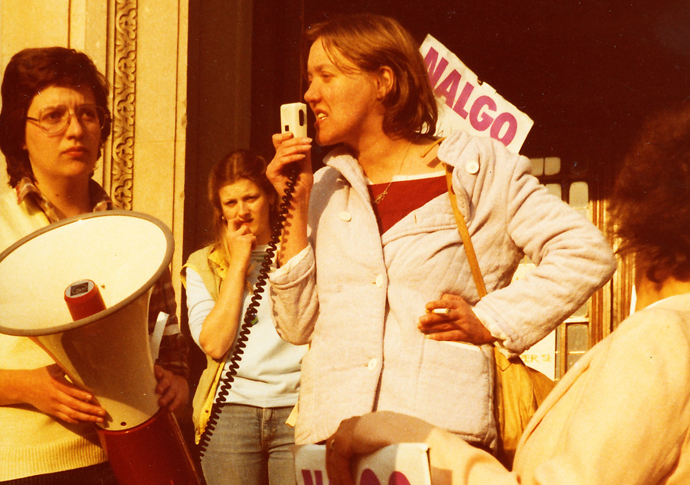‘Unite’ – that’s the advice from 1984’s strikers
Ex-nursery staff tell current workers: It’s different now
Friday, 1st September 2023 — By Izzy Rowley

Julia Manning-Morton
HISTORIC strikers have told the younger generation to unite, but say the road to success is not as straightforward as it was.
Nursery staff are facing the possibility of single-handedly looking after five two-year-olds each as part of the government’s increased staff-to-child ratios that were announced in March and are now due to come into effect.
Previously the ratio was one worker to four children.
In 1984 nursery workers in Islington were facing the same ratio increase, but walked out on a historic four-month strike that saw the ratio lowered to one to four.
Terry Conway, one of the 1984 strikers, said the ratios are not safe in some situations. “It’s never going to allow you to provide the level of support that some kids will need on some days or at some stages of their development,” she said. “Childcare is an interaction, and that means that you need the time to build up relationships.”
She added: “We were badly paid, which I don’t think was unconnected from the fact that the overwhelming majority of workers were women and that childcare is something that women are seen as automatically knowing how to do.”

Terry Conway on strike nearly 40 years ago
Ms Conway feels that the same issues of sexism and undervaluing nursery care work are at play today. She is part of an event running out of London Metropolitan University on September 9 in which 1984 strikers and nursery workers facing the same rise in ratios today will be brought together to see if uniting and striking once more is the answer to the sector’s problems.
Julia Manning-Morton, another 1984 striker who worked at what was Schofield Road nursery in Upper Holloway, said: “We’re living in very different times now. In 1984, most of the arrangements for childcare were locally based rather than nationally governed. So, in terms of national guidance in 1984, it was very broad and there was very little.
“Because things could be negotiated locally then, the powers that you were dealing with were much more tangible. Now, that is not the case, the ratios are set by national guidance and regulated through Ofsted.”
She added: “The feeling of power that you might have is greatly diminished now, because accessing the people who make those decisions is much more difficult.
“If I wanted to send a message to my students, my colleagues, to the younger generation of practitioners, I’d say that you have the right to stand up for what you think is right.
“Something I do say to my students on a regular basis is, ‘yes, we go into this work because we’re early childhood professionals, because we want to support families and make things better for children, and part of that professionalism is standing up and doing what you think is right for children and families.’
“We don’t operate in a vacuum, we don’t stand alone – the wellbeing of children and families is impacted by the wellbeing of educators, and if they’re overworked and underpaid, their ability to provide well for children is compromised.”